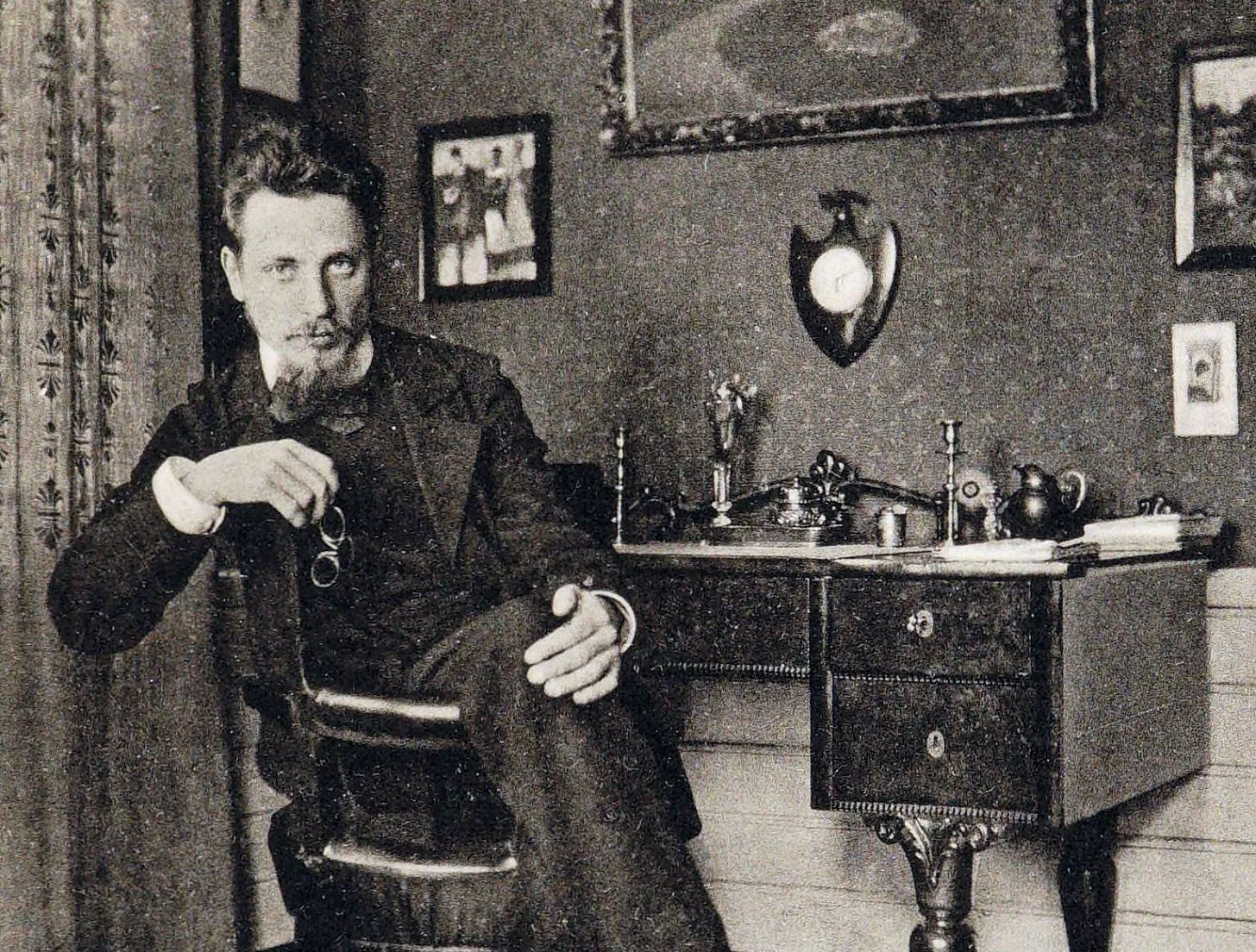A Theri's Voice Across Time
Reflections on Theragatha and Rilke https://thegentlelaw.wordpress.com
Theragatha Poem in Focus: Kisagotami's Voice
In Theragatha, each poem carries the unique imprint of a life transformed by wisdom. Today, I invite you to sit with a lesser-known but deeply moving verse attributed to Kisagotami, a woman whose journey from grief to liberation resonates profoundly even in our modern lives.
The Pali Verse
Kisagotami Theri Gatha (Therigatha 213–214)
“Parinibbuto thitimatī,
svāgataṃ yuttamāyati,
yassāyaṃ dhammapariyāyo,
mayhaṃ pāvacano ahu.”"Truly at peace, steadfast,
well-gone and wisely arrived—
This teaching has become mine,
a truth I now proclaim."
This brief poem encapsulates the transformation of Kisagotami, famously known for her poignant encounter with the Buddha after losing her child. While her earlier story emphasizes her desperation and eventual understanding of impermanence, this verse reveals a quiet triumph. She has embraced peace and is now a vessel of truth.
The verse reflects the quintessential Buddhist journey: the transcendence of personal suffering through wisdom and mindfulness. Kisagotami’s use of words like thitimatī ("steadfast") and svāgataṃ ("well-gone") highlight not just her attainment of Nirvana but also her clarity and strength in sharing her realization.
Her declaration, "This teaching has become mine," reveals a moment of empowerment. She is no longer a passive recipient of the Dharma but an active bearer of its light. It is a profound reminder that liberation is not merely a cessation but an embodied awakening that radiates outward to others.
A Modern Parallel: Rainer Maria Rilke
To see the universal thread in Kisagotami’s experience, I turn to Rainer Maria Rilke’s poem “Archaic Torso of Apollo”:
"You must change your life."
While vastly different in context, Rilke’s closing line echoes the transformative call of Kisagotami’s realization. Rilke’s poem reflects on the power of art to awaken us to deeper truths. The statue of Apollo, though incomplete, holds such presence and beauty that it demands a transformation in the observer.
Rainer Maria Rilke (1875–1926) was a Bohemian-Austrian poet and one of the most influential figures in modern literature. Known for his profound and lyrical explorations of existence, beauty, and spirituality, Rilke's works often reflect a deep sensitivity to the human condition. His most celebrated writings include Letters to a Young Poet, the Duino Elegies, and Sonnets to Orpheus. Rilke's poetry is characterized by its introspection, vivid imagery, and philosophical depth, offering timeless meditations on love, art, and the search for meaning in an ever-changing world.
Rainer Maria Rilke’s poetry does not explicitly mention Buddhism, but his work often aligns with Buddhist themes, such as impermanence, interconnectedness, and the nature of suffering and transformation. Rilke’s reflections on life and death, the transient nature of beauty, and the quest for inner understanding resonate with Buddhist thought, even if indirectly.
For example:
Duino Elegies - These poems explore themes of impermanence and the fragility of human existence, akin to the Buddhist concept of anicca (impermanence). The First Elegy reflects on the fleeting nature of life:
"For beauty is nothing but the beginning of terror,
which we are still just able to endure..."
The Book of Hours (Das Stunden-Buch) - This collection often reads like meditative prayer and reflects a spiritual intimacy with the universe. It mirrors the Buddhist practice of mindfulness and the interconnectedness of all things:
"I live my life in widening circles
that reach out across the world."
Letters to a Young Poet - In his letters, Rilke advises embracing solitude and life’s uncertainties, paralleling Buddhist teachings on self-awareness and the acceptance of suffering as part of the path to wisdom.
While Rilke was not a Buddhist, his poetic philosophy reflects a universal spirituality that deeply resonates with Buddhist principles.
Comparative Reflection
Both Kisagotami and Rilke explore the transformative potential of an encounter—Kisagotami with the Buddha’s teaching and Rilke with a work of art. Both experiences break open their sense of self and reveal an imperative to change.
Focus on Transformation: Kisagotami’s transformation stems from recognizing impermanence and the universality of suffering. Rilke’s transformation arises from the realization that beauty and truth impose a demand for action.
Language of Urgency: Kisagotami’s serene proclamation mirrors the quiet urgency of Rilke’s command. While Rilke’s "You must change your life" feels direct, Kisagotami’s declaration carries the same depth—an unspoken call for others to awaken as she has.
Why These Voices Matter
In a world that often drowns in noise, the stillness of Kisagotami’s verse and the striking immediacy of Rilke’s line remind us of the profound truths that lie just beneath the surface of our daily lives. Both invite us to pause, reflect, and ultimately transform.
Let us take these moments from two vastly different traditions—one ancient, one modern—and let them resonate together, illuminating the path from suffering to clarity, from beauty to truth.
What about you? Have you ever experienced a moment, like Kisagotami or Rilke, that called you to see the world differently? Let’s continue the conversation in the comments.





